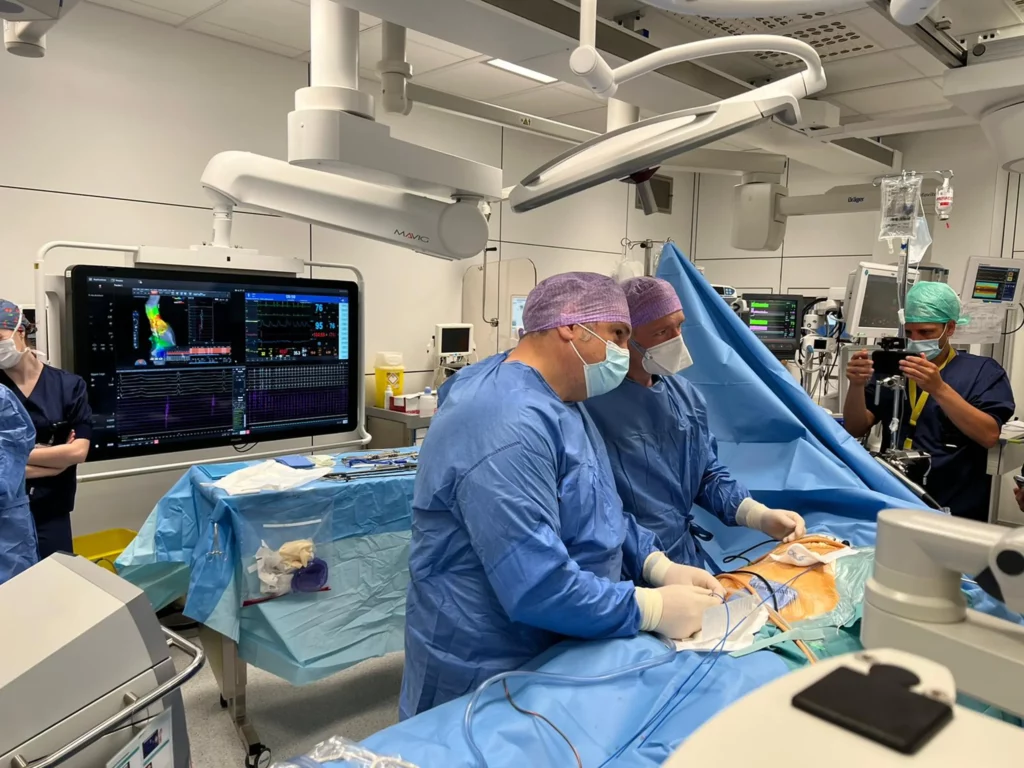The United States' Food and Drug Administration agency (FDA) hopes to take a leaf out of Belgium's book by launching its study into an emerging surgical technique meant to reverse cardiac arrhythmia.
In late May, two patients at UZ Brussel underwent treatment for Inappropriate sinus node tachycardia (IST) with the hybrid ISNT ablation technique as a part of the FDA's international study on the issue. IST is a rare heart disorder typically found in women in which the sinus node makes the heart beat too fast — both during rest and exertion.
According to UZ Brussel, the sinus node is the heart's "natural pacemaker." If the sinus node is malfunctioning, the patient can feel constant fatigue and dizziness.
The classic treatment of IST usually consisted of slowing the sinus node by using a catheter, but this often proved unsuccessful. Eventually, the patient would need a pacemaker.
To solve this problem electrophysiologist Prof. Carlo de Asmundis and heart surgeon Prof. Mark La Meir developed a combination of conventional techniques, in which the sinus node is isolated during surgery with a catheter in the right atrium of the heart and a keyhole-sized insertion is placed on the right chest, electrically isolating the sinus node.
The surgery has been performed on more than 250 patients since 2015, with positive results. Once those results were published, international interest was brought to UZ Brussels. All of this has led to the preparation of an FDA study, in which 40 centres in the United States and 5 in Europe will participate.
Related News
- University of Liège student wins 'My thesis in 180 seconds'
- Belgian Health Minister admits to series of blunders during Covid-19 pandemic
- AstraZeneca releases new data for promising anti-Covid drug
While only 1 percent of women suffer from IST, the disease usually presents itself in the early twenties of one's life. This means the patient will live with IST for the rest of their life — catheters, pacemakers and hospital visits would become a necessity.
With this study from UZ Brussel, experts are attempting to eradicate the disease before it can upend a patient's life.

